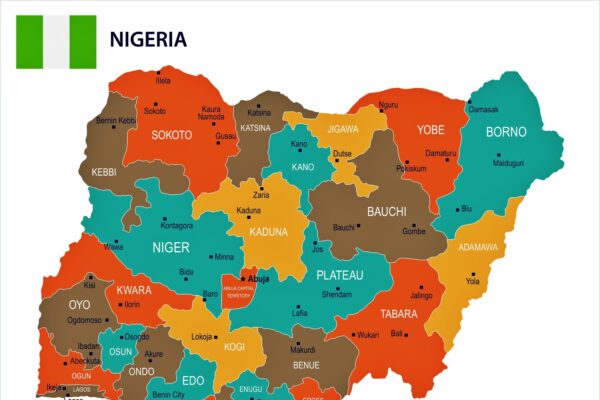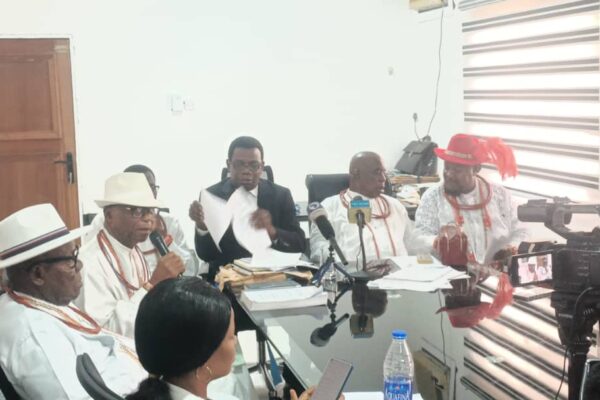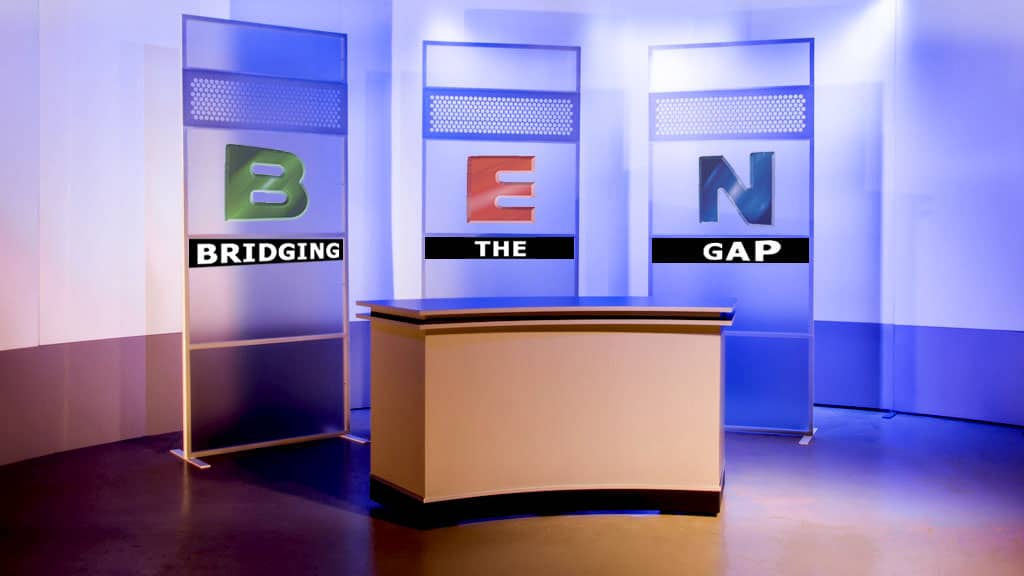The fashion industry, like many other sectors in the economy, has been negatively impacted by the prolonged COVID-19 pandemic, permanently changing lives, livelihoods and societies. The industry, during this pandemic, has witnessed loss of sales, resulting in many cancelled orders, store closures, job losses, and tough times for existing workers and suppliers. Adedayo Adejobi speaks with Founder Fashion Spaces, Aisha Abubakar- Achonu, who gives a bird’s eye view of COVID-19 impact on the fashion industry and how Nigerian fashion industry is navigating troubled waters
How has COVID-19 pandemic affected the Nigerian fashion industry?
I think it made people realise that fashion was not a basic need, during the lockdown, people were not buying fashionable pieces anymore. Most purchases were basic pants, T- shirts, Kimonos, convenient clothes that could be worn every day for their zoom meeting and at home. Professional women were buying things that are easy to use and interchange. It made sales slow, but after a couple of months based on the buying pattern, we realised what was going on and switched the creative process to inculcate some of the pieces that we usually would have on the rack since those were the things customers wanted at the time.
Have you personally suffered a big financial loss due to the nationwide lockdown last year?
Yes. We suffered for a few months. Export and logistics especially, getting products across was almost impossible. There was no way to fulfill commitments that had been made and even with contracts because this was a ‘force-Majeure’ situation. So people understood what was going on, but that wasn’t good for us because we had made financial plans based on some of the activities we had lined up. It affected us greatly then became better later in the year as we adapted our services to the production of protective gear especially face masks. After series of product testing, the face mask was certified by the Standard Organisation of Nigeria (SON) which gave us an edge over other face mask manufacturers.
Your apparel and fashion company seemed to have put their assets to good use in the crisis, by turning over your factory to make face masks and some medical supplies. What was it like navigating the crisis?
When we started we had challenges with raw materials. But then surprisingly, we found textile companies in Kano and Lagos that produced some of these materials for the coveralls, aprons, and general PPE’s used in the hospitals that could help create a film against the virus penetration. We always only sourced for PPE for the construction industry. The biggest challenge we were faced with was the fact that it wasn’t breathable. The coveralls for example, medical personnel need to be comfortable if they have to wear it between ten to twelve hours a day. So that made things very difficult. The fabric was required to be breathable and filter microbes and viruses.
Several webinars by Ministry of trade and investment, the Nigerian Centre for Disease Control (NCDC) and had furnished us with the production requirements. So when we realised some of the textiles we had gotten from here didn’t have those properties, we now had to import. Getting clearance for the consignments to come in even as essential commodities and services was a lot of hassle. We got in a good number and we started production eventually. The products were tested severally, we got certification and have since started production and distribution. Whilst companies and agencies have been buying. We are on track and just need to expand production.
Meanwhile, the garment factory is doing well. We are at 150 machine assembly line. A separate production facility was setup for the medical garments because it must be produced in a controlled temperature and environment. We moved our joiners to the new factory. Now, we have two facilities-one for clothing and the other for PPE’s.
Which is more profitable?
The thing with medical equipment is that it would always be needed. This is something that people would buy and keep using whether there is a pandemic or not. I think the medical equipment is an essential, so we can’t compare. It would always be needed. With fashion, our client and customer base is growing and the economy is picking up. So we are seeing people coming to buy and go for events. Life is coming back to what it used to be. I however don’t know how to compare. PPE would always be there, even with slim profit margins the income is not so huge, but it’s consistent and sustainable.
Weddings have been postponed indefinitely and even those that are happening have been scheduled in a much minimalistic manner. Nigerian weddings are considered a big industry for fashion designers. How has that impacted the entire business and sales?
It took a large chunk out of our business, but then we’ve been seeing brides that are also making their dresses and actually wearing them alongside just the groom and family members. The major part that is being removed I would say is the bridal train and guests. The brides, even mothers of the brides are still dressing up, with ten to twenty people. For me, the bespoke service arm of my brand focuses on the special occasions like life milestones, brides and the mother of the bride. It has always been this way so maybe that’s why I don’t feel it as much as others do. I know it has really impacted many businesses negatively.
You recently launched your new line. What inspired this new output?
It’s actually an off-season collection. It’s a collection that naturally goes from pain to light. It’s like a restoration. COVID-19 is something that none of us ever imagined. In my lifetime I have never experienced anything like it before. And I’m grateful that it came. I’ve experienced it and it has changed how I see fashion, my work, things, and life. People can use it for multiple purposes. If you buy the off-season piece, you’ll find that it has layers in that one clothing. So you can go from day to night and casual to work or glamour. The collection has the client in mind in a different way, all of the things they have to do and all the money they have to spend. So in that off-season collection, I have reversible capes, jackets, and dresses that you can take off, detaching some parts and attach back on just so that it’s sustainable, versatile and people don’t need to spend as much. Let’s sort of up-cycle and recycle our clothing instead of just buying. People can buy one or two quality items at a good amount for it, but it’ll be something that you can use and re-use. Even when you had a good share, you can keep it for your daughter or son. We need to begin to build back the culture of handing down items of clothing to our children. I feel it’s good to re-enact history because some of our histories have been lost. We don’t even know what we are wearing anymore. We don’t even know why people started wearing some styles. My work has changed. How I interprete my designs have changed a great deal.
Some notable Nigerians have died. You were on the frontlines in the heat of the COVID-19 pandemic. Could you share your experience with us?
It took a while for us to get a pass for our deliveries. We had to have security and we had to isolate the security and my staff in the facility. Nobody went home as we isolated in the facility where we worked for 90 days. Because there were no test kits available at the time, we couldn’t risk any of us going home and coming back with COVID-19. We were always fully clad in the cover-all. Even before we got the breathable cover-all, we were wearing the one that wasn’t breathable. The way we were sweating I was thinking these medical personnel wouldn’t be able to work in this cover-all. But I was wrong when I saw some of them using whatever was available as there was shortage of PPE. I have never been amazed by the Nigerian medical personnel until this pandemic happened. Seeing them working in difficult conditions and they were pulling through. They were clad from head-to-toe in these coveralls with their face masks, gloves, and shield working 12 hours a day, some worked 18 hours. I was really proud to be a Nigerian. It was inspiring. There was a contactless drop-off points and you don’t come close. Even when we got back, we washed our hands and went through a sanitising booth.
Nigerian designers rely on artisans. With some major factories partially closed occasioned by migrant workers who have returned home, what impact will it have on production?
If I tell you that I don’t have any migrant workers, you’ll be shocked. Initially, I did, but in 2018 the three that I had left as things were not working out. I was restructuring and sustainability was the core focus of my restructuring. I just let them go and since then all my staff have been wholly Nigerian.
With production and shipping of raw materials at a standstill in some countries occasioned by second wave of lockdown, how is the industry expected to fulfill orders for the rest of the fashion year?
The lockdowns would affect production a great deal. We have relationships with a few shipping companies like Maersk. Because I’m a member of the She-trades initiative, Maersk in collaboration with She Trades has said they are creating something that would ease business for us, especially women with small and medium businesses. So we are hoping that that comes through as soon as possible. For local logistics, we have a few companies that are really good like GIG and others that have a good rapport with international shipping companies, so they usually get things across but it takes a bit more time. DHL and UPS offer discounts and support as well.
Should the federal government compel Nigerians to another lockdown in this second wave, how long do you think the domestic fashion industry can sustain itself without sales?
I think it would be really bad for us. Nigerian women and men are so resilient. After the first one, we bounced back and ready to go at it again. I’m worried about the hic-ups it’ll cause, as they’ll affect timeless, deliverables, turnover, and projections. Economically I don’t think any business person would buy into this. If people are not making money, then they are not buying. So, if they are not buying, we are not making money.
Regarding couture collections, do you expect buyers will continue to spend lavishly?
With bespoke, it depends on what the client feels or what they want. Someone who can spend an amount of money on a piece must think it’s worth it-the value. For me, my brand offers value that equals the money any day. So I know that people who want that value will pay for it. For people who might be watching their budget, it’s a priority game. We’ve had clients who used to give us boxes of fabrics, but now they just send five. That’s a priority for you and that’s fine. Financially we might be shrinking in terms of income but if a client really wants an Aisha Abu-Bakr piece they’ll pay for it.
Should the pandemic end now globally, do you think the fashion industry will immediately bounce back, or will the recovery stretch over a long period?
I think it will take a while. The pandemic has affected people mentally and emotionally. Some things are being bought out of emotions. Some buy things just to make them feel okay or happier. But are they buying what they need or they are just randomly buying? Some people are not buying as they are thinking to themselves that they could die tomorrow. Mentally and emotionally the world has changed. There is no pattern that can help us determine what can actually happen. What I’m sure about is that it would take a while for things to get back to normal if it ever does.
Fashion designers are faced with heavy rentals for retail spaces; do you think there should be a policy on relief in this matter across the board?
To be honest I think the Federal government should intervene and help manufacturers. I started as a fashion designer but I’m really a garment manufacturer. I have a design team for my personal brand and I have a factory that produces for different businesses and brands. So you would find that for my brand I’m on the team with other people to create our collection. My factory on the other hand services my brand as a manufacturer. My energy just goes into the design process then we send it to the factory which operates an automated system. It’s convenient for me and many brands that have discovered that we do manufacturing. I think the Federal government needs to help the industry; garment manufacturers can have more capacity, textiles and retailers. So designers can put energy into their creativity and not worry about the garmenting process.
If I didn’t have a garment factory, I would have been producing between ten to fifty pieces of face masks daily with no protective capacity. I wouldn’t have been able to produce over four hundred thousand face masks. The garment factory did that, there is a different process in running a garment factory as opposed to running a workshop. They should encourage us by giving actual access to intervention programmes, double taxation is stretching us, they should consult with stakeholders when policy making. As a young business woman, if I had collateral that could fund my business plan, I would sell it and get rolling. They should find ways of risk evaluation and monitoring their monies.
They can be part of the system If need be for them to make sure that businesses are operating accordingly to pay up their debts. We’ve had several conversations with the government representatives and I haven’t seen anything yet. They need to support us and it needs to be done in a way that is sustainable. They should stop bringing up the collateral matters or interest rates that are hitting the roof. Nigerian business women especially are just trying to make a difference. We know that some cultures don’t leave room for women to own property thereby limiting our capacity. We are just trying to get into the system to build our nation and GDP but the system needs to help us as well.
But there is a creative industry fund. One would expect that you’ll access these funds for expansion. Have you?
As Founder of Fashion Spaces hub, a lot of designers are members of our community and nobody in our community has accessed the funds even after we collated names, took trainings to access this funding. I’m also a member of the Fashion Designers Association of Nigeria (FADAN), and we’ve not seen the money so I don’t know those who are accessing the money.
Sometimes, when they create these programs, they don’t call stakeholders to be part of the process. It would interest you to know that when they were creating the program, even the Fashion Designers Association of Nigeria, even the President was not invited on how the program would impact the lives of designers and creative in general. We were not represented. Nollywood and the music industry were the people reached out to. They lumped us alongside them forgetting theirs is a service -oriented business only, whilst ours is service and product based. The dynamics are totally different.
Is it fair to say that the federal government lacks a great deal of clarity in its execution process?
Respectfully, they do. And my advice is, when you want to impact a sector, you consult the stakeholders.
How do you think COVID-19 has changed our psyche?
It has changed my psyche for sure. I look at a lot of things differently. A lot of introspection has gone on. That period has helped me find a greater purpose and has offered me clarity and how I want to impact the world around me. COVID-19 showed me that even though you are in business, you could be in the business of impacting lives whilst making money.
With simpler, leaner supply chains winning out during this crisis, COVID-19 appears to be a trigger for brands not yet digitally-focused to begin exploring, if not yet adopting, these solutions. Are you aligning emerging technologies for business and profitability?
For sales, we went totally digital because there were no in-store sales at all. People placed orders via WhatsApp, Instagram, and the website. Initially, we didn’t use to do WhatsApp orders but have started taking orders across all these platforms. Our cutting system also became digitised. COVID-19 made us invest some time and money into digitising our system from production to sales. I am grateful for it. I don’t know why I didn’t do it earlier.
Post COVID-19, how do you see 2021 turning out to be for Nigeria’s fashion industry?
I think a lot of brands have been in incubation, so post- COVID-19; we are going to have an explosion of creativity. The Federal Government still needs to empower. And empowering is with support by building their capacity and providing facilities where the capacities can become reality.
—————————————————————————————————————————————
Your help to our media platform will support the delivery of the independent journalism and broadcast the world needs. Support us by making any contribution. Your donation and support allows us to be completely focus, deeply investigative and independent. It also affords us the opportunity to produce more programmes online which is a platform universally utilised.
Thank you.
Please click link to make – DONATION







